Former RSPBA Adjudicator Alistair Aitken concludes his excellent look back over his three decade career as a pipe band judge. Piping Press wishes to express its gratitude to Alistair for sharing his highly entertaining and informative reminscences with the international pipe band world via our pages.
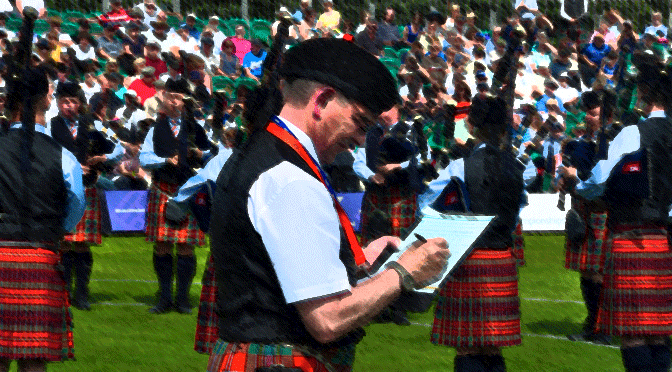
One year I was judging at the Melrose local competition the day after the World Championships. The Harwich Pipe Band from England competed at the contest on its way back home. When starting its performance, and before the end of the introductory rolls, a snare drum suddenly came rolling out the back of the drum corps quickly followed by a young drummer.
As well as a total surprise, this was a disqualification matter. Disqualification is not within the powers of the adjudicator however, so I had no choice but to note what had happened on the critique sheet. When the last band had played I asked the two National Council officials what they intended to do about it. The answer I received was ‘about what?’ It emerged that both had (unofficially) taken a tea break during the performance and didn’t see the incident. The band decided to disqualify itself.
In 1997 I judged ensemble in Grade 1 at the World Championships. Just as Nat Russell had readied the Victoria Police band to start their performance the then RSPBA Chairman arrived to introduce to the four adjudicators the Chieftain of the Day, Pat Lally, Lord Provost of the City of Glasgow.
I could not keep the band waiting and, while I also did not want to disrespect the Lord Provost, I had no choice but to almost blank him, quickly apologise and tell him that I had to signal the band to start its performance. It was an example of how the band had to take priority but at the same time the incident affected the concentration of the adjudicators. Nothing should be more important than the interests of the performing band.
There was a Major Championship one year in Scotstoun Stadium in Glasgow during the period when RSPBA adjudicators were required to consult about their results at the end of each competition. They could then change their points allocation if they wished.
The contest I was judging was running late through no fault of the adjudicators. When it ended the adjudication team was unexpectedly informed by the RSPBA official in charge that there was no time for the consultation in view of the need to start the afternoon competitions on schedule.
At that time I was Secretary of the Adjudicators’ Panel so I was delegated to inform the official that the consultation had to go ahead as it was a mandatory requirement. Having to negotiate with the official resulted in even more time being lost but the consultation did go ahead.
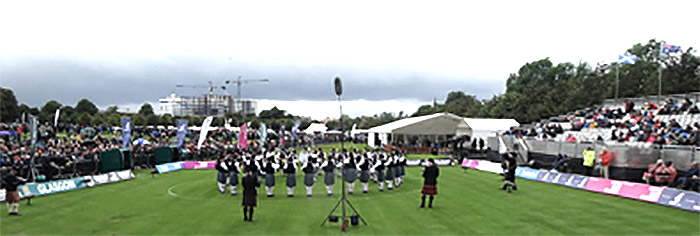
When judging ensemble in Grade 3 at the Worlds one year it became apparent that the drumming adjudicator was not present for the start of the contest, which caused some initial panic. He had still not turned up when the first band marched up to the starting line. Luckily the reserve adjudicator, who could judge either drumming or ensemble, was close to the arena, so he was asked by the RSPBA official in charge to take over.
Just as that was being arranged the official drumming adjudicator turned up and demanded to be allowed to adhere to his original role. While all this was going on the first band was still standing at the starting line. My role as ensemble adjudicator was simply to signal the band when to start before adjudicating the performance.
I considered the extended delay to be ridiculous and unfair to the band however, so in the circumstances I decided to suggest to the Pipe Major that he take his band back to the final tuning area to retune if he wanted to. He did so until it was finally decided that the reserve adjudicator would not take over the role of the original adjudicator.
By being late the adjudicator caused a significant delay to the start of the contest, unfairly put additional pressure on the first band to play, put unnecessary pressure on the other adjudicators and affected the tuning timing plans for bands due to play later in the contest. Adjudicators are required to be in place at least ten minutes before the start of a contest.
A similar situation arose one year at Cowal Games when judging Grade 4 in the field above the main arena. I was judging ensemble and Bob Worrall was judging piping. The first band was at the starting line and there was no sign of the other piping adjudicator or the drumming adjudicator.
After a delay while we waited I had to use my mobile phone to contact the RSPBA Chief Executive, who informed me that the two adjudicators had just left the office cabin and were walking up to contest area. Their late arrival resulted in the contest starting about ten minutes late, with the same added pressures as the previous example. It was also disrespectful to the first band.
When judging at a contest in Northern Ireland, I noted that the RUC Pipe Band had new snare drums which I did not consider had yet been tuned to what I regarded a balanced band sound. It was in the days when points were used, so I deducted two points for drum tone.
About two weeks later I was back at another contest in Northern Ireland and again judged Grade 1. As the RUC was about to start its performance a loud voice came from the surrounding spectators ‘Ye’ll noooo take two f****** points off them today’. Was that someone on his home turf trying to influence the adjudicator?!!
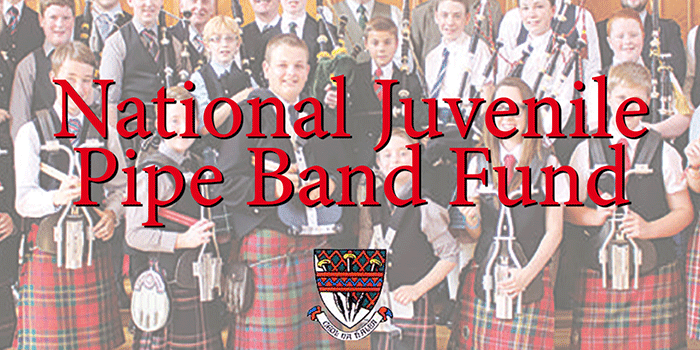
I judged on a variety of occasions at the Continental Pipe Band Championships at Alden Biesen Castle in Belgium. On one of these occasions I was judging one of the Bagads from France, all dressed in colourful boiler suit type garments.
Suddenly during the performance the bass drummer took off on his own outwith the band circle and danced around the arena while still playing his bass drum. I never found out if this was the norm in his home territory but it certainly was a novel way of affecting the balance of the band sound. In other respects it was a very good band performance!
To conclude, I suspect that this series will not be without criticism but it gave me something to do to ease the boredom of lockdown, and I hope it illustrates that the role of the pipe band adjudicator is not quite as easy as many people seem to think. Of course adjudicators have to justify their results by their actions and by writing an appropriate and constructive written critique, but at times they are criticised very unfairly.
They also have to be pretty thick-skinned as the criticism can often be quite nasty. I suppose it is all part of human nature and I doubt it will ever change unless some form of robot system of adjudication could be invented, but no doubt even that would get criticised. I leave you with this thought: without adjudicators would there be any pipe band competition?
- Read the first article in this series here. Adjudicator Bob Worrall mentioned above is giving a webinar on piping for Canada’s PPBSO tonight. Other talks in the series are by Andrew Lawson (July 14) and Bill Livingstone (July 18). Registration link for all three: https://www.eventbrite.ca/o/the-pipers-and-pipe-band-society-of-ontario-30403154684
-
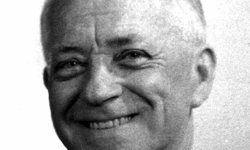 Donald MacLeod Tunes – ‘Play Along’ LessonsPrice range: £2.00 through £2.50
Donald MacLeod Tunes – ‘Play Along’ LessonsPrice range: £2.00 through £2.50 -
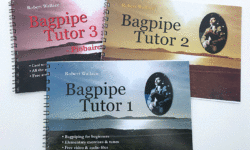 10 Tutor Books for Schools/ Bands/ Trade£105.00
10 Tutor Books for Schools/ Bands/ Trade£105.00







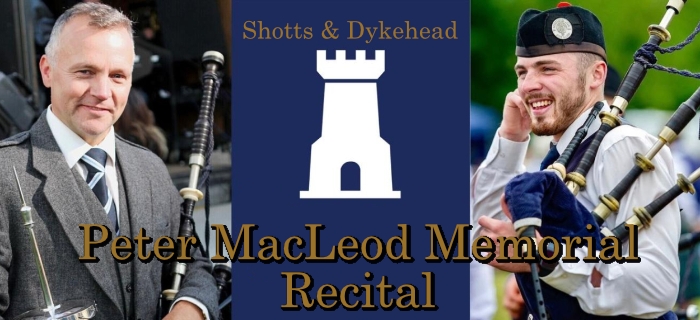









I take it Ian you are thinking about Grade 1 only when you mention 24 pipers and 12 drummers.
An excellent set of articles by Alistair Aitkin, someone who, from my experience, always endeavoured to practise what he preached; he was and still is a person of integrity.
Now that he is no longer active on the RSPBA Adjudication Panel, may I suggest he is exactly the type of person who would be ideal as a member of an Independent Review Panel re Contest Outcomes. Today other than gossip, and there is plenty of that, bands in all of the Grades do not have access to an independent or authoritative voice should there be a need. Yes, some will protest, there is still an RSPBA Complaints Procedure in place. However, that route has long been ignored by the majority; suspected I believe of merely being one more vehicle to deliver yet another biased outcome.
Much time, effort, and in addition personal cost is the lot of band members today. Having access to a recognised, independent voice to review contest verdicts that have given rise to concern is surely long overdue.
The benefits I suggest could be twofold at least:- An upsurge in confidence of bands on the integrity of Adjudicators on the RSPBA Panel and a rebuilding of trust in the Ruling Body of the RSPBA.
I must say that I throughly enjoyed Mr Aitken’s posting on the website. Some very insightful thoughts on judging of pipe bands
Thanks for the articles.
Alistair’s articles and anecdotes have been very interesting and amusing. Thank you for these stories! My 2 comments to add: 1) with the huge size of bands these days, judges cannot be expected to see or hear everything that is happening during a performance in the circle, so its important that judges are all in different positions, and are free to roam. 2) a mandatory judges consultation should be re-instated at the end of a competition, for the above same reasons that any one judge cannot see and/or hear everything that is happening with a massive circle of perhaps 24 pipers and 12 drummers. Also, I fully agree with Alistair’s final point that judges have an extremely difficult job to do, and we should trust and respect their views and integrity.